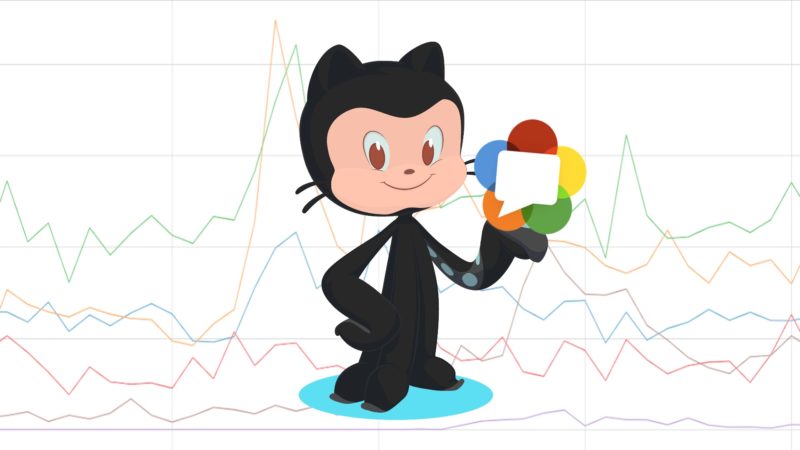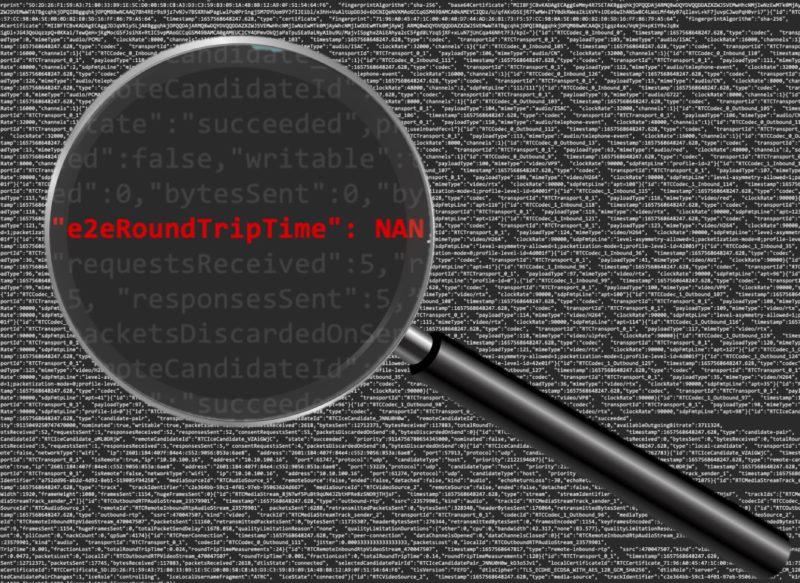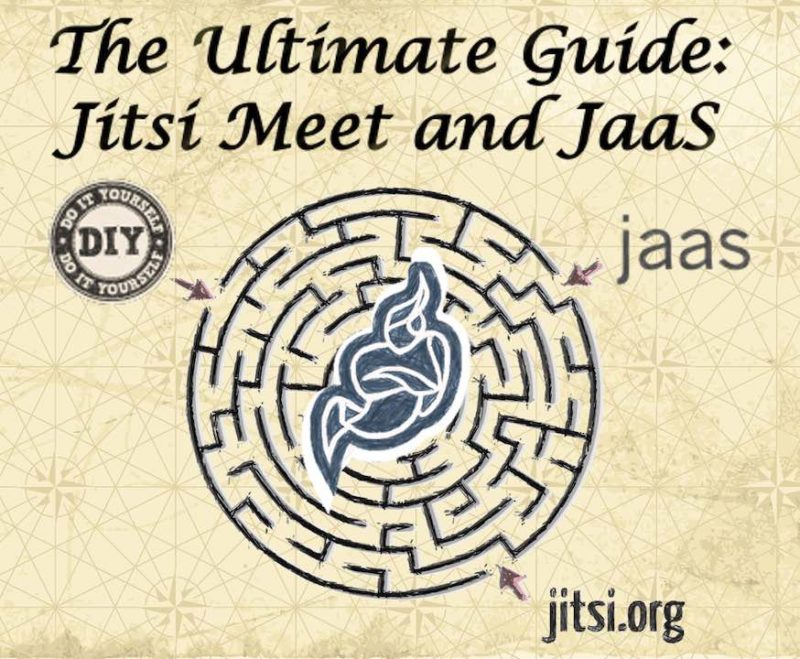WebRTC blackbox reverse engineering experts Gustavo and Fippo take a look at Cloudflare’s new WebRTC implementation, how Cloudflare uses the new WebRTC-based streaming standards WHIP and WHEP, and the bold pronouncement that they can be a replacement to open source solutions.
Post-Peak WebRTC Developer Trends: An Open Source Analysis
WebRTC had its peaks during the pandemic, but how is it doing now? Did all those new projects die, putting the community back at pre-pandemic “normal” levels or is WebRTC still going strong? I built and analyzed a dataset from over a million GitHub’s events since 2019 to help answer are there many new WebRTC-related repos, how many new users is WebRTC attracting, is the community coding as much as it used to, how are new API’s like Insertable Streams and WebCodecs doing?
Calculating True End-to-End RTT (Balázs Kreith)
Balázs Kreith of the open-source WebRTC monitoring project, ObserveRTC shows how to calculate WebRTC latency – aka Round Trip Time (RTT) – in p2p scenarios and end-to-end across one or more with SFUs. WebRTC’s getStats provides relatively easy access to RTT values, bu using those values in a real-world environment for accurate results is more difficult. He provides a step-by-step guide using some simple Docke examples that compute end-to-end RTT with a single SFU and in cascaded SFU environments.
The Ultimate Guide to Jitsi Meet and JaaS
A full review and guide to all of the Jitsi Meet-related projects, services, and development options including self-install, using meet.jit.si, 8×8.vc, Jitsi as a Service (JaaS), the External iFrame API, lib-jitsi-meet, and the Jitsi React libraries among others.
Meet vs. Duo – 2 faces of Google’s WebRTC
A very detailed look at the WebRTC implementations of Google Meet and Google Duo and how they compare using webrtc-internals and some reverse engineering.





